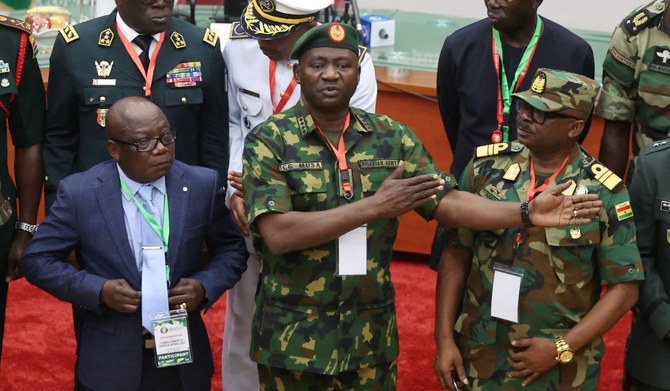In the wake of the recent ousting of Niger’s president by mutinous soldiers, the United States has taken significant actions in response. Security cooperation with the country’s military in the fight against Islamic militants has been suspended, and the State Department has initiated a partial evacuation of nonessential personnel and dependents from the U.S. Embassy. Additionally, President Biden has made a call for the immediate release of the deposed President Mohamed Bazoum, who, along with his family, has been held under house arrest in the presidential palace.
Despite these measures, the Biden administration has refrained from officially labeling this event as an illegal armed overthrow, commonly known as a military coup. Addressing it as such is crucial to maintaining the United States’ credibility on the African continent.
Niger’s neighboring countries within the Economic Community of West African States (ECOWAS), the European Union, and France — which maintains a substantial military presence of around 1,000 troops due to its colonial history — have all unequivocally condemned the takeover as a coup. In contrast, the United States has taken a more cautious approach, with hopes that diplomatic efforts could lead to a peaceful resolution and the restoration of President Bazoum.
However, the chances of a diplomatic solution seem to be dwindling. Almost a month after President Bazoum’s ousting, during which he was replaced by General Abdourahmane Tchiani, who headed his presidential guard, the military takeover seems to be solidifying.
Efforts by ECOWAS to restore President Bazoum to power by issuing a one-week ultimatum or facing military intervention have proven fruitless. With the coup leaders reportedly threatening harm to President Bazoum in the event of an attack, and with many Nigerien civilians supporting the power grab, the prospects of a military solution have become dim. Neighboring countries with military-run governments, including Mali, Burkina Faso, and Guinea, have endorsed the new leadership in Niamey, while diplomatic attempts to engage with Niger’s ruling generals have been met with rejection.
Currently, there is talk of putting President Bazoum on trial for “high treason,” a move that could lead to his execution if convicted. Furthermore, reports indicate that President Bazoum and his family are cut off from external communication and may be facing shortages of essential supplies. Human rights organizations also report difficulties in accessing other officials from Bazoum’s government who were detained following the coup.
The hesitance of the U.S. administration is somewhat understandable due to legal considerations. Under U.S. law, designating the incident as a coup would necessitate the discontinuation of foreign aid and military assistance, as well as the withdrawal of American troops, which are currently stationed on their bases in Niger. Niger holds a crucial role in the fight against Islamist militants associated with al-Qaeda and the Islamic State in the volatile Sahel region of Africa.
Since the initial deployment of 100 troops by President Barack Obama in 2013, which aimed to collaborate with Nigerien and French forces in combating jihadists in neighboring Mali, the U.S. mission has expanded to include 1,100 troops training elements of Niger’s military and establishing drone bases. Niger exemplifies the U.S.’s post-Afghanistan counterterrorism strategy, involving a limited deployment of troops to address emerging threats globally.
Abandoning Niger could potentially exacerbate instability in the Sahel region by empowering jihadist groups, leading to more displacement, and potentially creating a vacuum for entities like Russia’s Wagner Group mercenaries to exploit.
Nevertheless, the importance of Niger transcends its security significance. Since President Bazoum’s peaceful assumption of office in 2021, marking the first transfer of power between democratically elected presidents in the country, Niger has come to symbolize democracy in a region known for political upheaval.
These complexities highlight the dilemma faced by the Biden administration, not only in Niger but globally, as it endeavors to uphold democratic values while dealing with pragmatic challenges. Balancing the promotion of democracy with the need to address urgent concerns such as counterterrorism, containment of expansionist powers, and security threats involves engaging with governments that may not align with democratic principles or human rights.
In the aftermath of President Bazoum’s removal, the Biden administration, particularly within the military circles, has reportedly been exploring options to sustain U.S. involvement in Niger and continue collaboration with its armed forces. Over the past decade, the two nations’ militaries have cultivated a close working relationship, and Niger’s military leadership has not exhibited overt anti-American sentiment.
A potential solution exists in the form of a provision within Congress’s omnibus budget resolution for this year. This provision permits the secretary of state to grant a waiver based on national security grounds if the overthrow of a democratic government results in a cessation of U.S. military assistance. Given the complex dynamics in Niger, a temporary waiver might be a viable option, allowing limited military cooperation to persist while also providing more time to gauge the efficacy of diplomatic initiatives. Importantly, such a waiver should not signify endorsement of the current situation and should be coupled with the ongoing demand for President Bazoum’s release.
However, the first essential step is to acknowledge the reality of the situation. It’s imperative to recognize the event for what it is: a coup.
